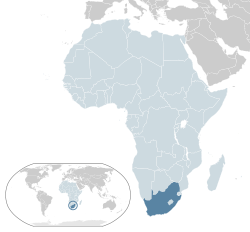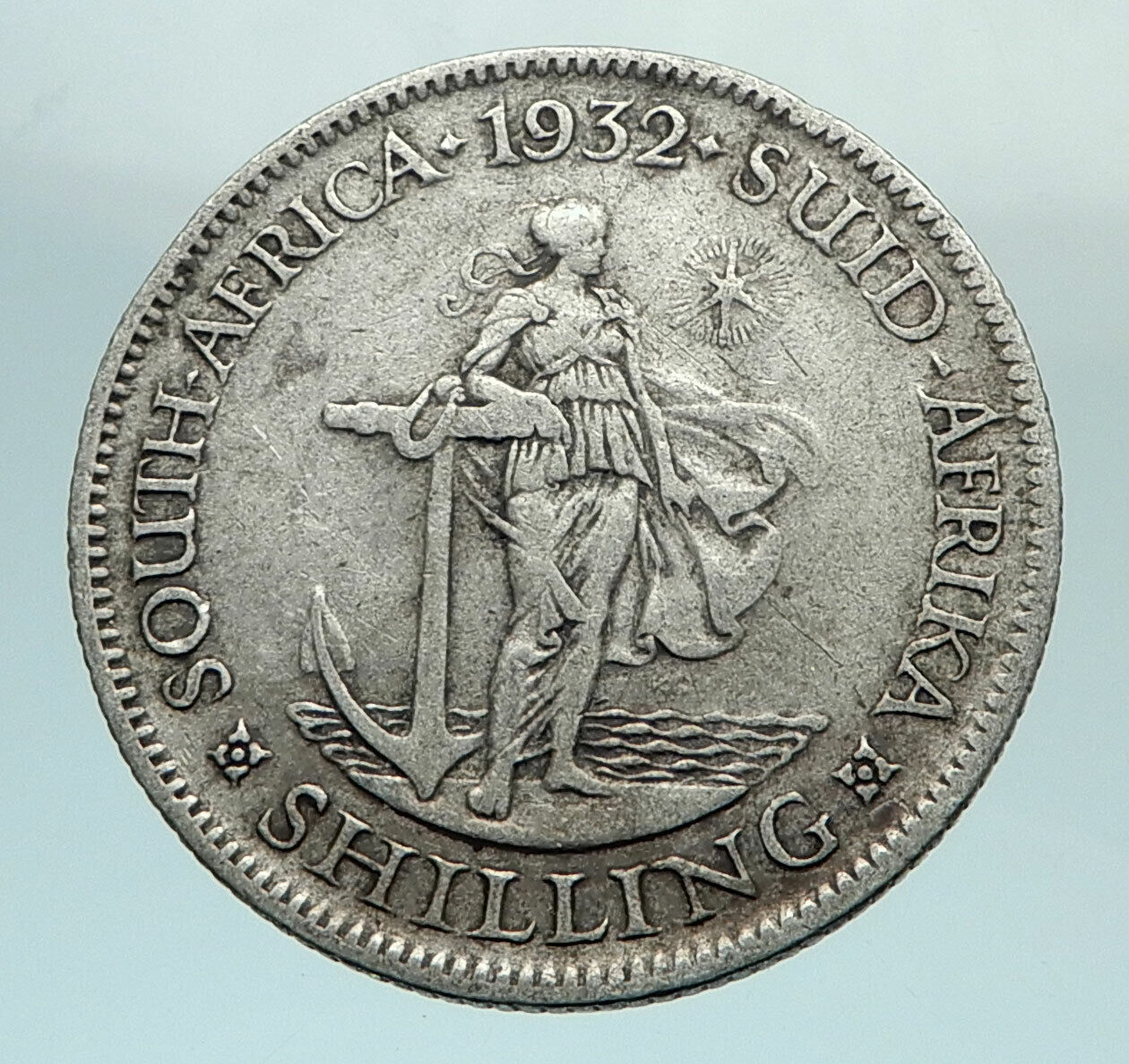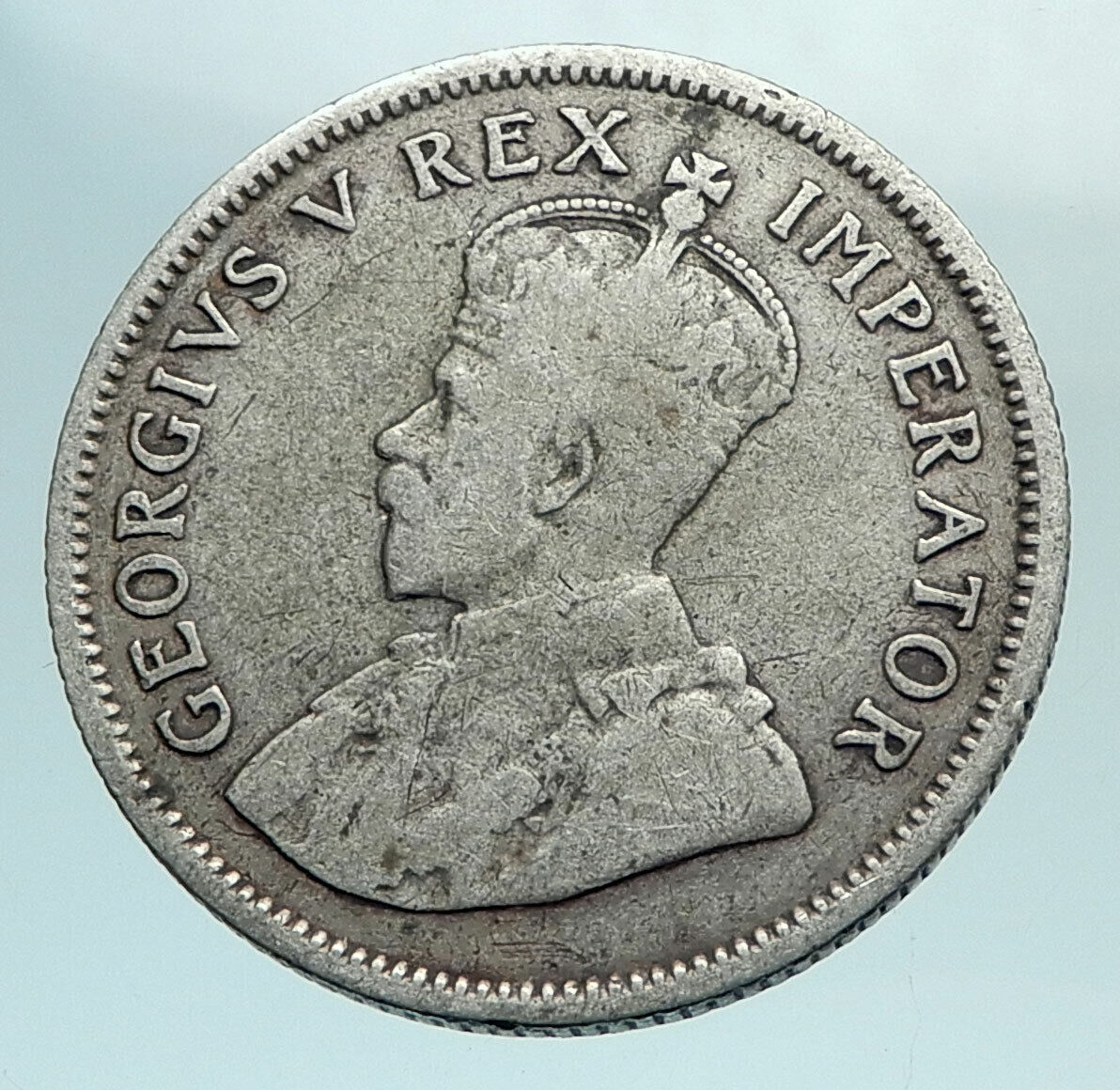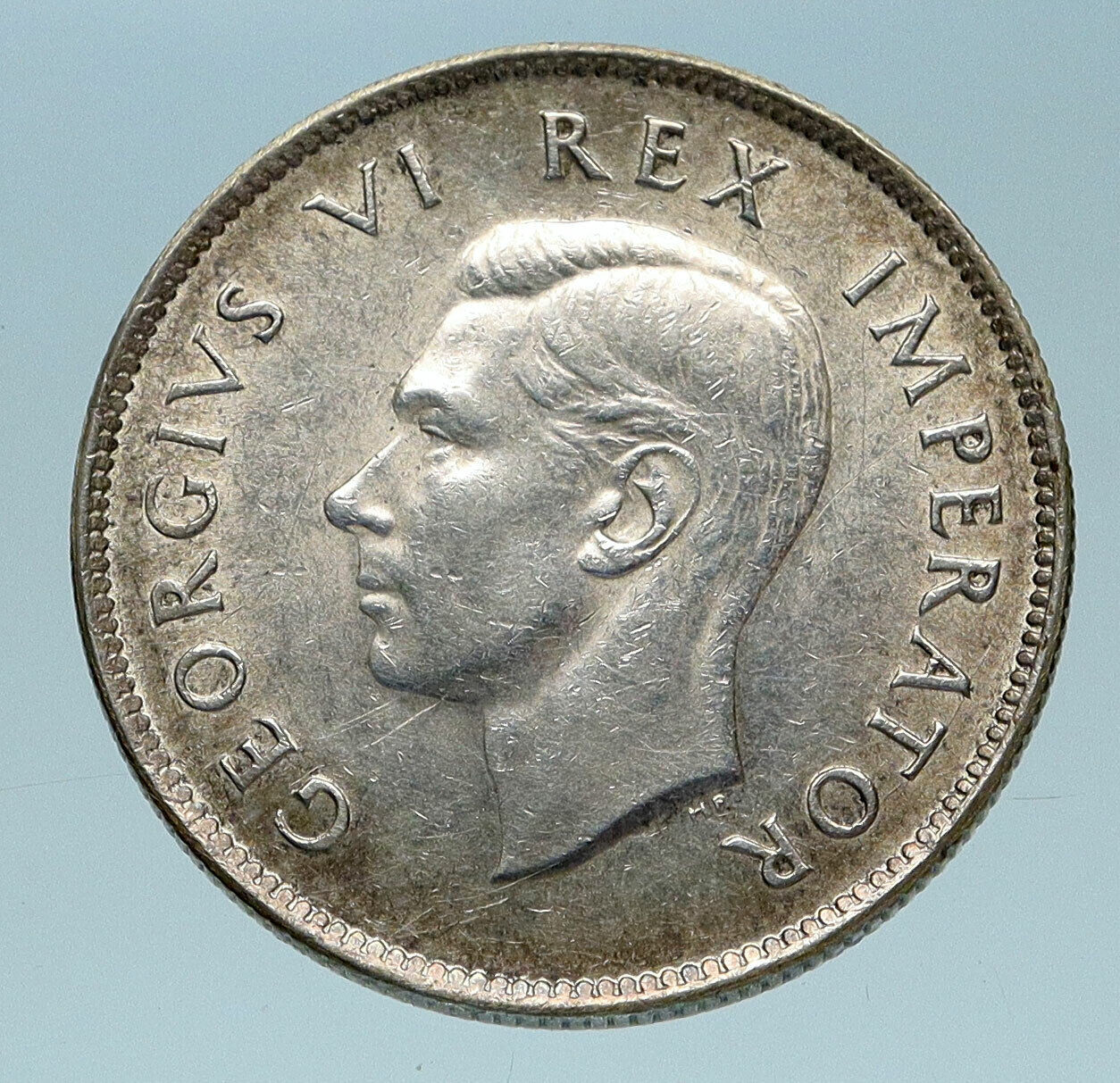|
South Africa
1897 Silver Sixpence 19mm (2.80 grams) 0.999 Silver (1.00 oz. ASW)
Reference: KM# 4, Hern# Z11-16 | Engraver: Otto Schultz
Bearded bust of President Johannes Paulus Kruger left.
Z.A.R 18 6 92, Central denomination dividing date within olive wreath.
You are bidding on the exact item pictured, provided with a Certificate of Authenticity and Lifetime Guarantee of Authenticity.
 Stephanus Johannes Paulus Kruger ((Afrikaans pronunciation: [ˈkry.ər]; 10 October 1825 – 14 July 1904) was a South African politician. He was one of the dominant political and military figures in 19th-century South Africa, and President of the South African Republic (or Transvaal) from 1883 to 1900. Nicknamed Oom Paul (“Uncle Paul”), he came to international prominence as the face of the Boer cause—that of the Transvaal and its neighbour the Orange Free State—against Britain during the Second Boer War of 1899–1902. He has been called a personification of Afrikanerdom, and remains a controversial figure; admirers venerate him as a tragic folk hero. Stephanus Johannes Paulus Kruger ((Afrikaans pronunciation: [ˈkry.ər]; 10 October 1825 – 14 July 1904) was a South African politician. He was one of the dominant political and military figures in 19th-century South Africa, and President of the South African Republic (or Transvaal) from 1883 to 1900. Nicknamed Oom Paul (“Uncle Paul”), he came to international prominence as the face of the Boer cause—that of the Transvaal and its neighbour the Orange Free State—against Britain during the Second Boer War of 1899–1902. He has been called a personification of Afrikanerdom, and remains a controversial figure; admirers venerate him as a tragic folk hero.
Born near the eastern edge of the Cape Colony, Kruger took part in the Great Trek as a child during the late 1830s. He had almost no education apart from the Bible. A protégé of the Voortrekker leader Andries Pretorius, he witnessed the signing of the Sand River Convention with Britain in 1852 and over the next decade played a prominent role in the forging of the South African Republic, leading its commandos and resolving disputes between the rival Boer leaders and factions. In 1863 he was elected Commandant-General, a post he held for a decade before he resigned soon after the election of President Thomas François Burgers.
Kruger was appointed Vice President in March 1877, shortly before the South African Republic was annexed by Britain as the Transvaal. Over the next three years he headed two deputations to London to try to have this overturned. He became the leading figure in the movement to restore the South African Republic’s independence, culminating in the Boers’ victory in the First Boer War of 1880–81. Kruger served until 1883 as a member of an executive triumvirate, then was elected President. In 1884 he headed a third deputation that brokered the London Convention, under which Britain recognised the South African Republic as a completely independent state.
Following the influx of thousands of predominantly British settlers with the Witwatersrand Gold Rush of 1886, “uitlanders” (out-landers) provided almost all of the South African Republic’s tax revenues but lacked civic representation; Boer burghers retained control of the government. The uitlander problem and the associated tensions with Britain dominated Kruger’s attention for the rest of his presidency, to which he was re-elected in 1888, 1893 and 1898, and led to the Jameson Raid of 1895–96 and ultimately the Second Boer War. Kruger left for Europe as the war turned against the Boers in 1900 and spent the rest of his life in exile, refusing to return home following the British victory. After he died in Switzerland at the age of 78 in 1904, his body was returned to South Africa for a state funeral, and buried in the Heroes’ Acre in Pretoria.
 South Africa, officially the Republic of South Africa (RSA), is the southernmost country in Africa. It is bounded on the south by 2,798 kilometres (1,739 mi) of coastline of Southern Africa stretching along the South Atlantic and Indian Oceans; on the north by the neighbouring countries of Namibia, Botswana, and Zimbabwe; and on the east and northeast by Mozambique and Swaziland; and surrounds the kingdom of Lesotho. South Africa is the 25th-largest country in the world by land area, and with close to 56 million people, is the world’s 24th-most populous nation. It is the southernmost country on the mainland of the Old World or the Eastern Hemisphere. About 80 percent of South Africans are of Sub-Saharan African ancestry, divided among a variety of ethnic groups speaking different Bantu languages, nine of which have official status. The remaining population consists of Africa’s largest communities of European (white), Asian (Indian), and multiracial (coloured) ancestry. South Africa, officially the Republic of South Africa (RSA), is the southernmost country in Africa. It is bounded on the south by 2,798 kilometres (1,739 mi) of coastline of Southern Africa stretching along the South Atlantic and Indian Oceans; on the north by the neighbouring countries of Namibia, Botswana, and Zimbabwe; and on the east and northeast by Mozambique and Swaziland; and surrounds the kingdom of Lesotho. South Africa is the 25th-largest country in the world by land area, and with close to 56 million people, is the world’s 24th-most populous nation. It is the southernmost country on the mainland of the Old World or the Eastern Hemisphere. About 80 percent of South Africans are of Sub-Saharan African ancestry, divided among a variety of ethnic groups speaking different Bantu languages, nine of which have official status. The remaining population consists of Africa’s largest communities of European (white), Asian (Indian), and multiracial (coloured) ancestry.
South Africa is a multiethnic society encompassing a wide variety of cultures, languages, and religions. Its pluralistic makeup is reflected in the constitution’s recognition of 11 official languages, which is among the highest number of any country in the world. Two of these languages are of European origin: Afrikaans developed from Dutch and serves as the first language of most white and coloured South Africans; English reflects the legacy of British colonialism, and is commonly used in public and commercial life, though it is fourth-ranked as a spoken first language. The country is one of the few in Africa never to have had a coup d’état, and regular elections have been held for almost a century. However, the vast majority of black South Africans were not enfranchised until 1994. During the 20th century, the black majority sought to recover its rights from the dominant white minority, with this struggle playing a large role in the country’s recent history and politics. The National Party imposed apartheid in 1948, institutionalising previous racial segregation. After a long and sometimes violent struggle by the African National Congress and other anti-apartheid activists both inside and outside the country, discriminatory laws began to be repealed or abolished from 1990 onwards.
Since 1994, all ethnic and linguistic groups have held political representation in the country’s democracy, which comprises a parliamentary republic and nine provinces. South Africa is often referred to as the “Rainbow nation” to describe the country’s multicultural diversity, especially in the wake of apartheid. The World Bank classifies South Africa as an upper-middle-income economy, and a newly industrialised country. Its economy is the second-largest in Africa, and the 34th-largest in the world. In terms of purchasing power parity, South Africa has the seventh-highest per capita income in Africa. However, poverty and inequality remain widespread, with about a quarter of the population unemployed and living on less than US$1.25 a day. Nevertheless, South Africa has been identified as a middle power in international affairs, and maintains significant regional influence.
|





 Stephanus Johannes Paulus Kruger ((Afrikaans pronunciation: [ˈkry.ər]; 10 October 1825 – 14 July 1904) was a South African politician. He was one of the dominant political and military figures in 19th-century South Africa, and President of the South African Republic (or Transvaal) from 1883 to 1900. Nicknamed Oom Paul (“Uncle Paul”), he came to international prominence as the face of the Boer cause—that of the Transvaal and its neighbour the Orange Free State—against Britain during the Second Boer War of 1899–1902. He has been called a personification of Afrikanerdom, and remains a controversial figure; admirers venerate him as a tragic folk hero.
Stephanus Johannes Paulus Kruger ((Afrikaans pronunciation: [ˈkry.ər]; 10 October 1825 – 14 July 1904) was a South African politician. He was one of the dominant political and military figures in 19th-century South Africa, and President of the South African Republic (or Transvaal) from 1883 to 1900. Nicknamed Oom Paul (“Uncle Paul”), he came to international prominence as the face of the Boer cause—that of the Transvaal and its neighbour the Orange Free State—against Britain during the Second Boer War of 1899–1902. He has been called a personification of Afrikanerdom, and remains a controversial figure; admirers venerate him as a tragic folk hero. South Africa, officially the Republic of South Africa (RSA), is the southernmost country in Africa. It is bounded on the south by 2,798 kilometres (1,739 mi) of coastline of Southern Africa stretching along the South Atlantic and Indian Oceans; on the north by the neighbouring countries of Namibia, Botswana, and Zimbabwe; and on the east and northeast by Mozambique and Swaziland; and surrounds the kingdom of Lesotho. South Africa is the 25th-largest country in the world by land area, and with close to 56 million people, is the world’s 24th-most populous nation. It is the southernmost country on the mainland of the Old World or the Eastern Hemisphere. About 80 percent of South Africans are of Sub-Saharan African ancestry, divided among a variety of ethnic groups speaking different Bantu languages, nine of which have official status. The remaining population consists of Africa’s largest communities of European (white), Asian (Indian), and multiracial (coloured) ancestry.
South Africa, officially the Republic of South Africa (RSA), is the southernmost country in Africa. It is bounded on the south by 2,798 kilometres (1,739 mi) of coastline of Southern Africa stretching along the South Atlantic and Indian Oceans; on the north by the neighbouring countries of Namibia, Botswana, and Zimbabwe; and on the east and northeast by Mozambique and Swaziland; and surrounds the kingdom of Lesotho. South Africa is the 25th-largest country in the world by land area, and with close to 56 million people, is the world’s 24th-most populous nation. It is the southernmost country on the mainland of the Old World or the Eastern Hemisphere. About 80 percent of South Africans are of Sub-Saharan African ancestry, divided among a variety of ethnic groups speaking different Bantu languages, nine of which have official status. The remaining population consists of Africa’s largest communities of European (white), Asian (Indian), and multiracial (coloured) ancestry.




